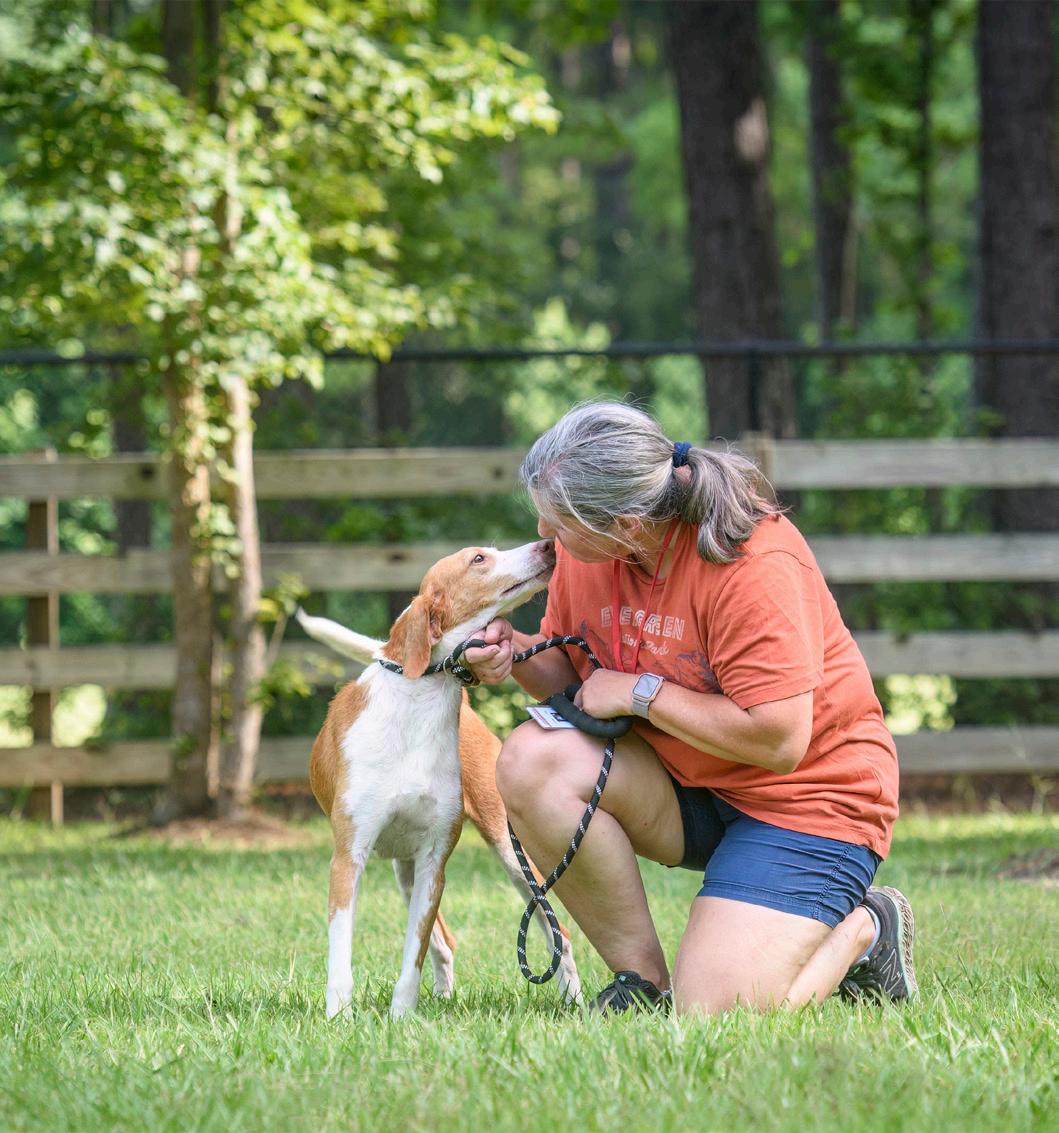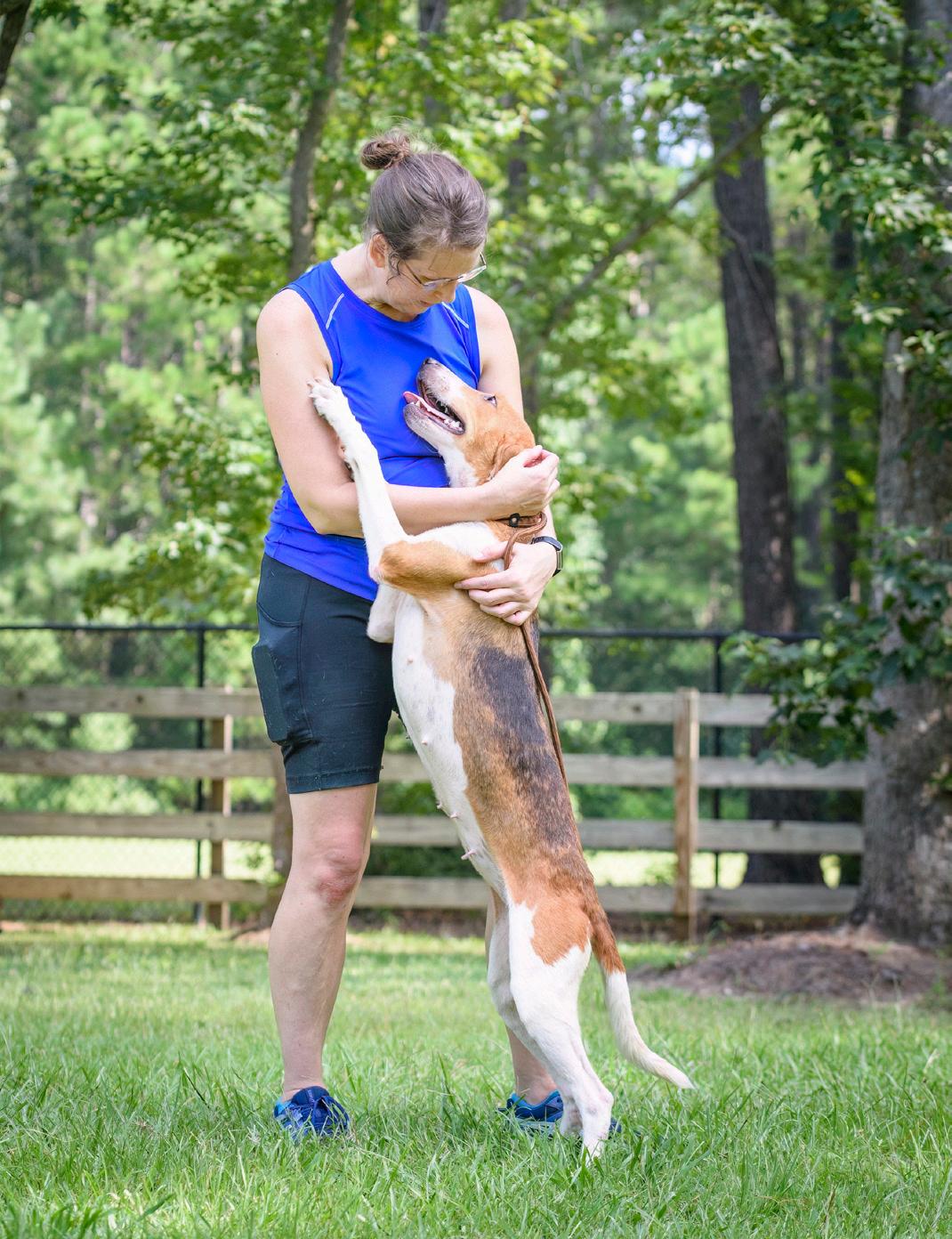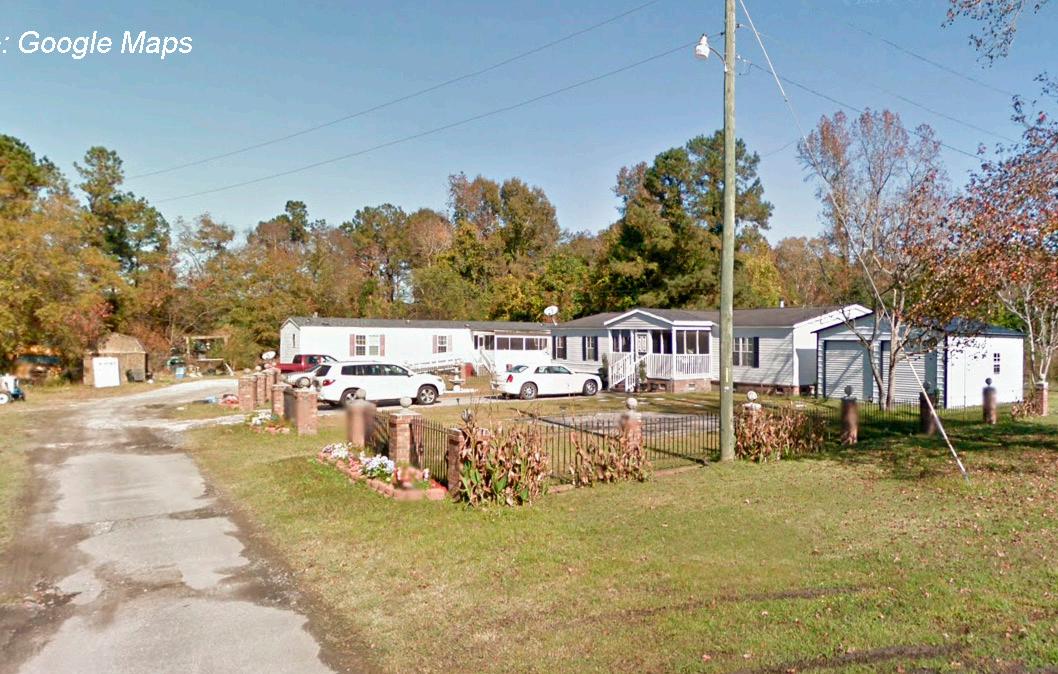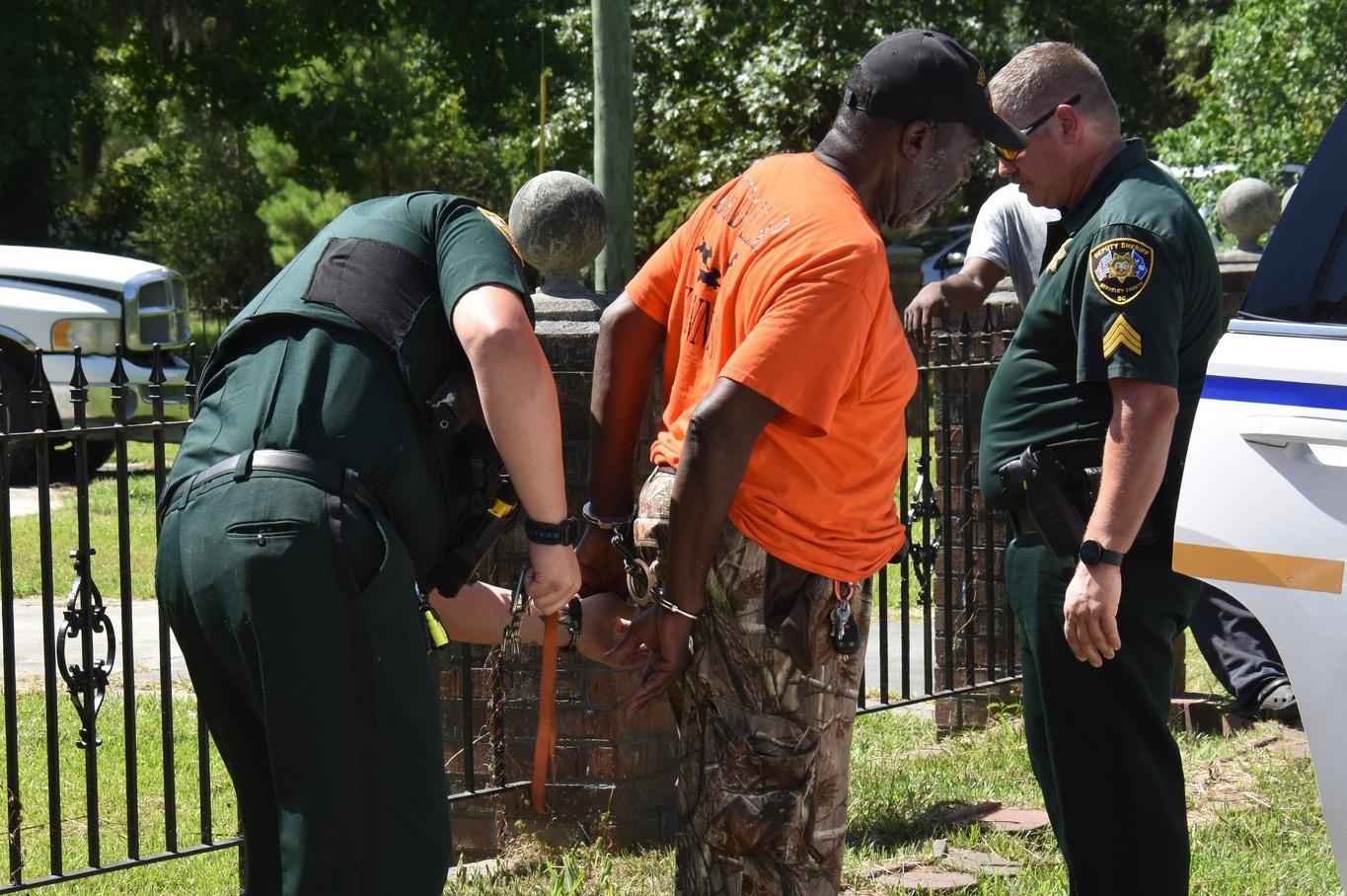
7 minute read
STRONGER TOGETHER: Two Lowcountry Shelters United in One Mission
WRITTEN & PHOTOS BY JEANNE TAYLOR Staff Writer
Unless you have been hiding under a rock, you probably know that Charleston Animal Society recently assumed operational management of Berkeley Animal Center. I have worked closely with both shelters over the years and am optimistic about the future of what is now known as the Charleston Animal Society Berkeley Campus. July 1, 2025, marked a new day for the animals of Berkeley County, and as a Berkeley County resident, I am hopeful and excited for what this means.
The new shelter located at 131 Central Berkeley Drive in Moncks Corner opened in the summer of 2021. The land offered a major physical improvement over the previous shelter’s property, and the facility itself was new and fresh, although, unfortunately, it did not enhance the capacity over the previous shelter. But the intakes still kept coming! As Berkeley County has exploded with an estimated 40,000+ new residents since the 2021 shelter was erected, not surprisingly, so have the intake numbers of the single shelter that serves a county as large as the state of Rhode Island. Interestingly, Rhode Island actually has more than 20 animal shelters, according to Best Friends.org. Currently, Berkeley County ranks among the top five fastest-growing counties in the state and is purported to fall within the top 10 for growth nationally.
Why has it been such a challenge?
While Charleston Animal Society for years supported Berkeley Animal Center in a number of ways, and staff from No Kill South Carolina also worked closely with the shelter’s leadership in recent years to audit processes and try to effect positive change, resources, both human capital and financial, were simply not sufficient for the shelter to succeed. But now that’s changed.
As CAS continues to transition shelter operations at the Berkeley campus to align with its proven policies and processes, staff, volunteers, and the community will begin to see marked improvements. Will it take time? Of course. No undertaking of this magnitude happens in a blink. But the blending of operations will reduce duplicated efforts and deploying proven best practices at the Berkeley campus will create additional efficiencies as well. Further, as a 501c3, CAS can fundraise in ways that BAC, as a municipal shelter, never could.
Representatives of the Friends of Berkeley Animal Center, a local nonprofit that has supported the Berkeley shelter since 2019, are also looking forward to this union and the positive changes to come. Board President Olivia Whitehurst relayed, “We are hoping to be able to join forces to continue the support that we have always given to the Berkeley shelter.”
One of those activities will be the group’s upcoming sixth annual Rescue Me event to be held at Cypress Gardens on September 27, so save the date! This is a large crowd event with multiple rescues on-site working to have their animals seen, adored, and adopted. But it’s more than that; it’s also a community event for families with vendors, food trucks and entertainment too.
Berkeley County Councilwoman Amy Stern was instrumental during the contract process. As a former animal cruelty investigator herself, Councilwoman Stern is very connected to the animal welfare community and quickly realized the benefit in bringing these two organizations together. Stern notes, “I think it’s a fantastic opportunity for Berkeley County residents to have access to more spay and neuter resources as well as educational resources.” Councilwoman Stern was also the driving force within the county government to help bring to fruition a spay/neuter voucher program for Berkeley County residents, recognizing spay/ neuter is going to be the best way to alleviate the pet overpopulation crisis.
Boots on the ground legacy staff at the Berkeley campus will be crucial to the smooth transition, offering historical knowledge while working alongside CAS mentors and trainers to adapt to new processes and policies with an eye toward improved operational efficiency.
Volunteers will continue to be the lifeblood of the Berkeley campus, with their unwavering commitment to the shelter animals.

While the CAS Berkeley Campus had to restart the shelter’s large social media presence from scratch on July 1, it’s clear the online community is watching with the page gaining almost 2,000 followers thus far. CAS will employ the full force of its social media and marketing staff to ensure the Berkeley campus is in front of the community, to include media spots, events, and campaigns to promote adoption, fostering, volunteering, spay/neuter, and all the other important cogs in an effective shelter system.

Once the ink was on the paper, the CAS transition team rolled up their sleeves and got to work. What no one could have predicted though, was the impending seizure of 35 hounds from a cruelty case out of Goose Creek (Berkeley County) on July 2, just one day after assuming responsibility, adding to the burden of an already overtaxed shelter. This case made national news, with a joint effort between law enforcement, the Berkeley County animal cruelty investigator and CAS’s veterinary and other trained staff, with the removal of 35 hounds in varied health statuses, as well as the discovery of multiple dog skulls on the property. The hounds were living in deplorable conditions without access to clean water or food. What water containers were nearby were full of contaminants, while the dogs were confined to cramped conditions, surrounded by their own feces and urine-soaked structures. Some of the dogs were covered in ticks, while others were emaciated and showed evidence of untreated injuries. Sources say these hounds had been brought to South Carolina from Tennessee without the required health certificates or legally required rabies vaccines.
Interestingly, or perhaps infuriatingly, this same offender, Loney Garrett, was arrested in 2013 for animal cruelty, at the same location, where 200 dogs were found buried on his two-acre property. In 2015, Garrett was initially charged with 43 counts of animal cruelty. He was convicted and sentenced to two years in prison and five years of probation for only 10 of those charges. Obviously, this mild reprimand was not a sufficient consequence to prevent a recurrence. The system failed these animals, and the community needs to rally to ensure it doesn’t happen again - not by the hands of this offender, or any other. It should be noted Garrett’s son, Loney Garrett, Jr., is also being charged with one count of ill-treatment of animals.
The shelter team has been caring for these nowgrateful hounds, assessing their conditions, ensuring they reach a healthy weight, and that they receive the additional vet care they had been lacking under Garrett’s ownership.
On July 18, Charleston Animal Society was awarded custody of all 35 dogs. And now the task is underway to place the dogs in foster homes. The Berkeley campus staff members are asking for the community’s help by fostering these hounds until they are adoption-ready. Unfortunately, history has shown shelter intakes won’t slow down simply because there is “no room at the inn.” Foster homes will be key to the ideal outcome for these 35 souls, which will ultimately be finding them loving forever homes. If you believe you may be able to help in some way, please contact the shelter.
With the blending of these two large animal sheltering systems, one thing is clear: the community’s support will be vital to the ongoing efforts on behalf of the animals in Berkeley County. With a large rural geo-area in the county too, it must be said: if you see something, say something! These animals did not have to endure such a terrible existence until they were rescued. And we can work together to ensure no animal experiences such a miserable life again. Stronger together. ■

Photos are from the Charleston Animal Society Berkeley Campus Facebook page.




